Roles of Executive, Judiciary, and Legal in Health and Social Care
VerifiedAdded on 2023/01/13
|5
|747
|57
Report
AI Summary
This report delves into the critical roles of the executive, judiciary, and legislature within the health and social care sector. It highlights the legislature's responsibility in enforcing laws and legislations, ensuring legal and ethical healthcare practices. The executive's role is to enforce rules and standards, focusing on operational, medical, and financial stability to meet patient needs. The judiciary's function involves applying laws to specific cases, administering justice, and upholding peace and order by overseeing both public and private law. The report emphasizes the interconnectedness of these branches in maintaining a legal and ethical framework within the healthcare system, ensuring that healthcare activities are conducted lawfully and ethically. References include various books and journal articles that support the analysis of the roles of the three branches of government in healthcare.
1 out of 5
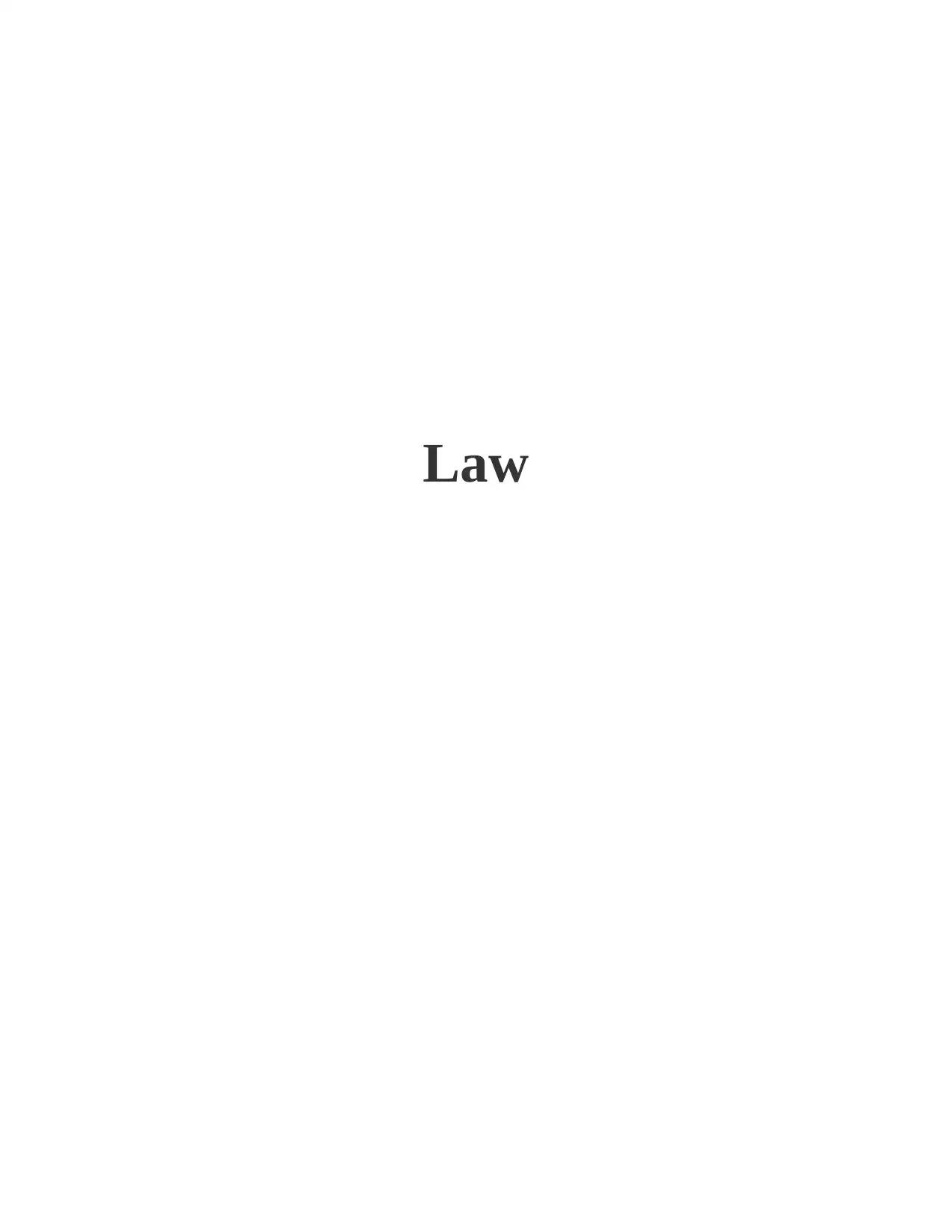
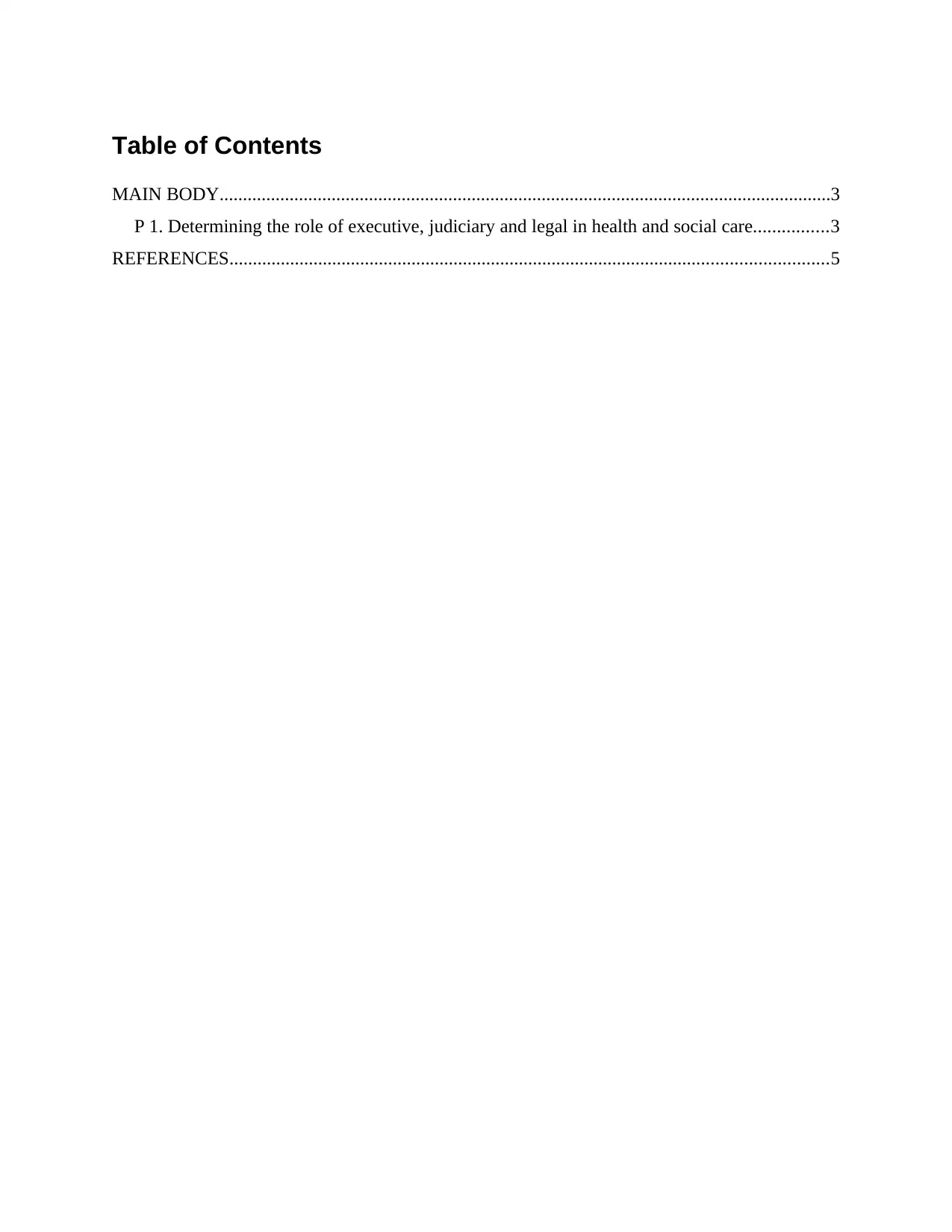
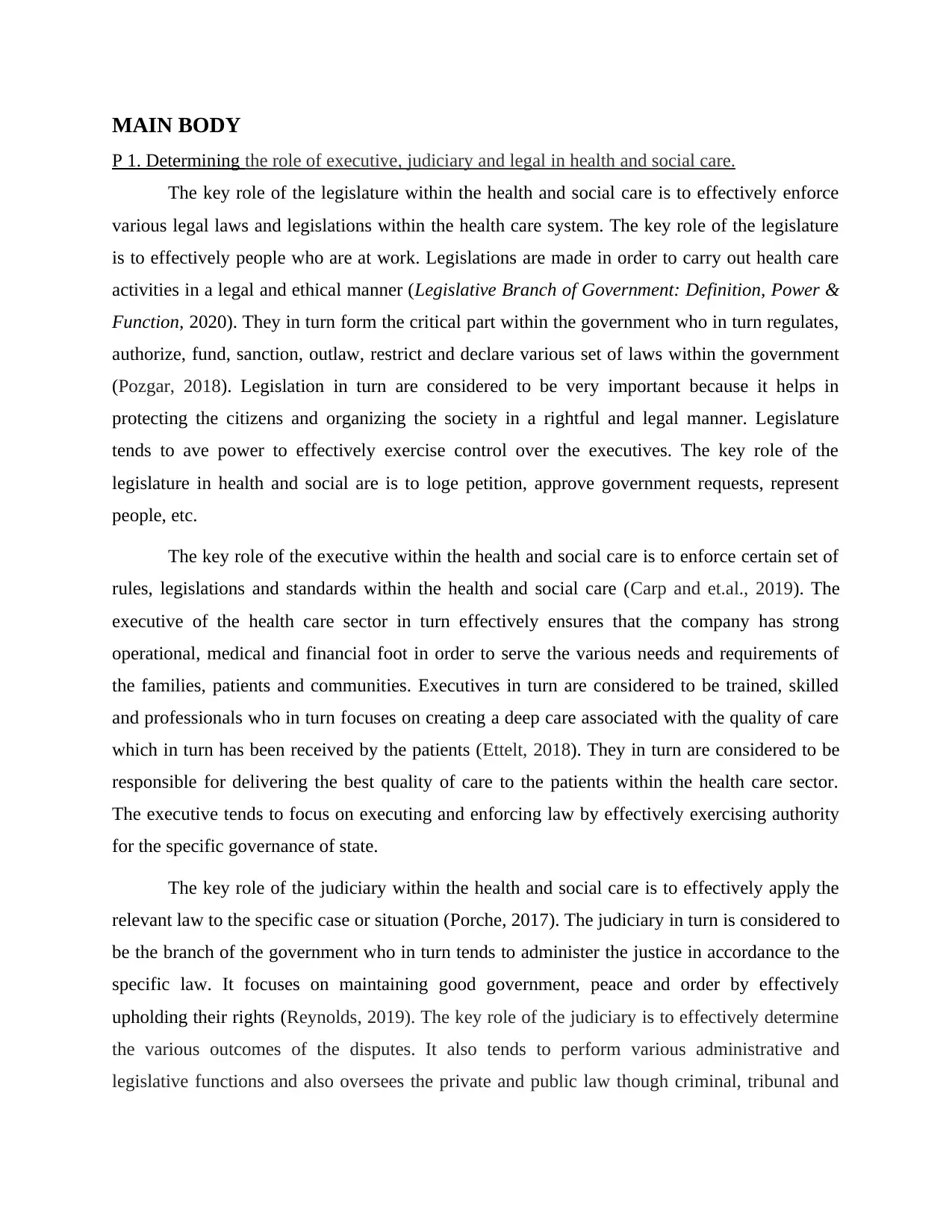

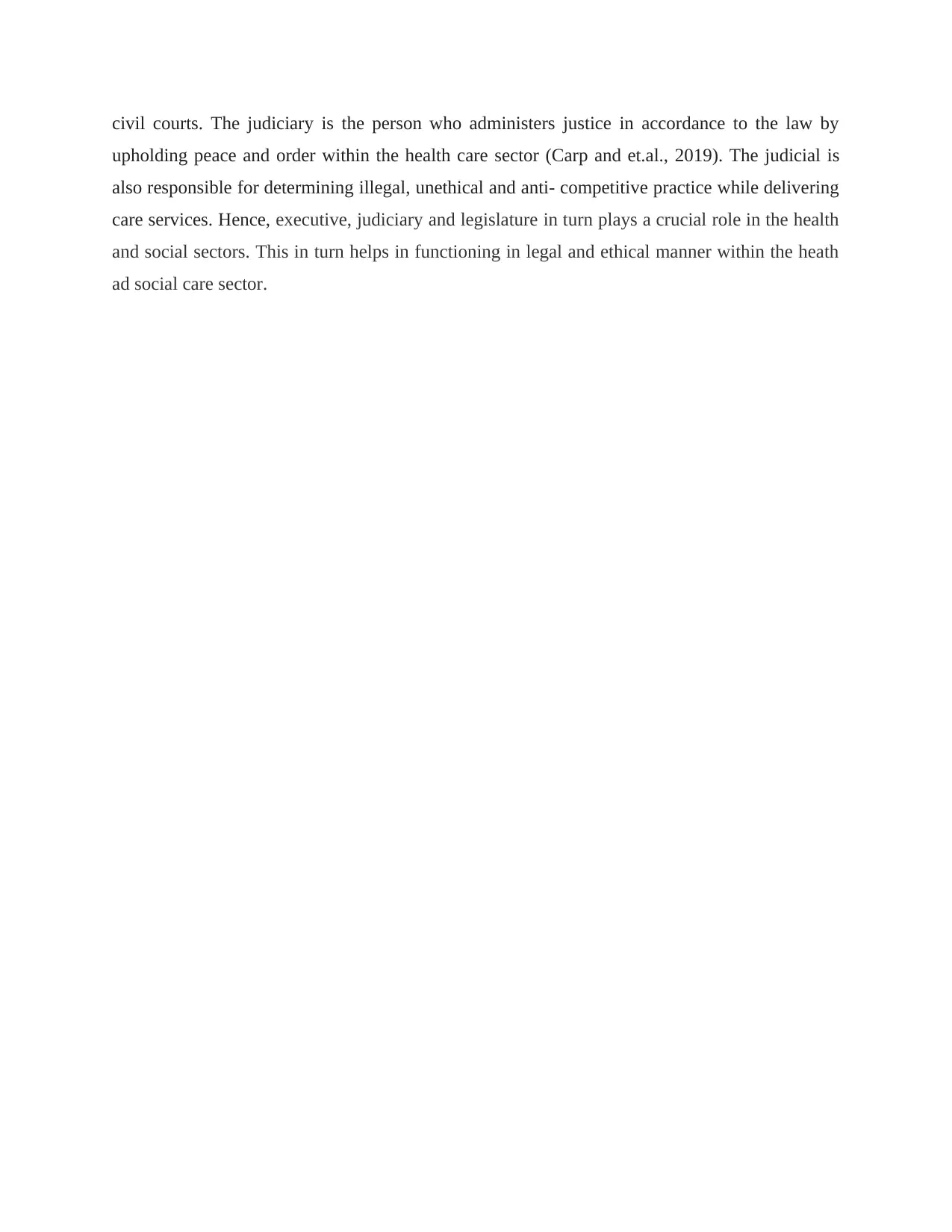
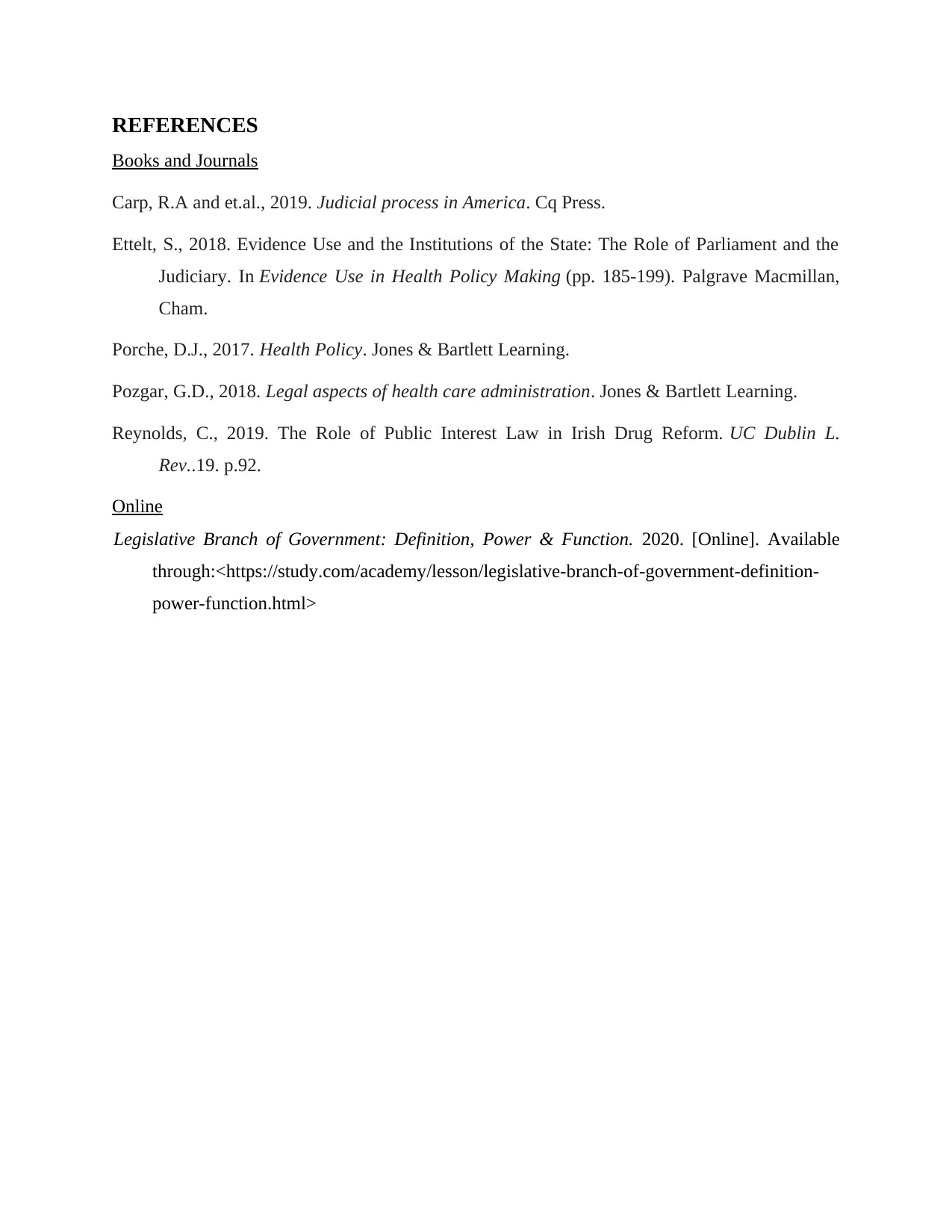






![[object Object]](/_next/static/media/star-bottom.7253800d.svg)